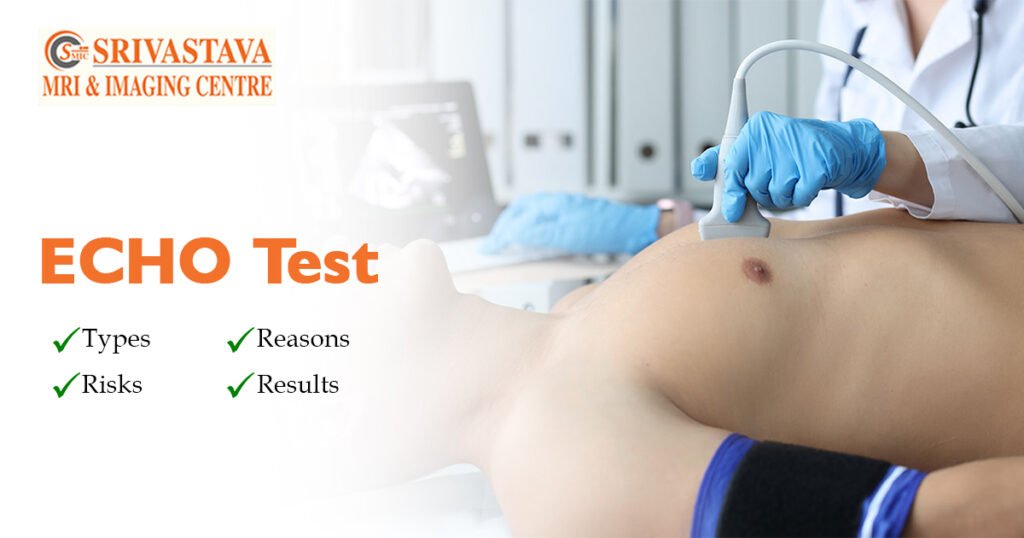An echocardiogram, also known as an echo test, is a type of ultrasound test that uses high-pitched waves of sound that are transmitted through a device called a transducer. This device detects sound wave echoes that bounce off the various parts of the heart. The echoes are converted into digital images of the heart that are displayed on a video screen.
Types Of Echo Tests:
- Transthoracic Echocardiogram –This is the most common type of echo test, in which the probe or transducer is placed on the human chest wall. During the procedure, sound waves bounce off the heart structures, and the same transducer receives the return signals and, with the help of a computer, converts them into the visualized images on the screen.
- Doppler Echocardiogram –This is the second type of echo test that assesses the pressure with which blood flows through the heart valves, heart chambers, and blood vessels throughout the body. The test uses sound waves from a transducer to reflect blood movement. The ultrasound computer then determines the speed and direction of the blood as it flows through the vessels and heart. The Doppler measurements are represented in white and black.
- Stress Echocardiogram –The third type of echo test assesses the heart’s level of stress. It aids in measuring various abnormalities within the muscle function and heart wall, and as a result, the patient is advised to walk, exercise, or work before the test. It also aids in ensuring that. It also aids in determining whether your heart is receiving adequate blood flow.
- Transesophageal Echocardiogram –This is the final type of echo test in which the probe moves down the esophagus rather than over or outside of the chest wall. It depicts a more accurate picture of your heart. Because the bones and lungs of the chest wall do not obstruct the sound waves generated by the probe. To keep you comfortable during the procedure, an anesthetic and sedative lotion are applied to your throat.
Risks of Echocardiogram
The echo test is safe because it only uses sound waves to examine heart movements. These sound waves have no known negative effects. Following the test, there is a chance of experiencing a mild allergic reaction. It is due to the use of gels applied to the patient’s body. Furthermore, the stress echo test can cause dizziness, shortness of breath, irregular heartbeats, low blood pressure, and heart attack immediately following the test. It can also cause nausea, throat and mouth discomfort, irregular and slow heartbeats, and minor bleeding.
You may be able to avoid the Echo test if you have:
- Have you recently received radiation treatment for your chest or neck?
- encountered a bleeding disorder, such as hemophilia
- Have a problem? Swallowing
- Serious esophageal problems, such as dilated veins, narrow esophagus, bleeding or ruptured esophagus, or acute arthritis.
FINAL WORDS!
Look no further than the best MRI Center in South Ex, MRI Srivastava! Our facility houses a full range of Magnetic Resonance Imaging (MRI) machines that are capable of scanning organs such as the brain, heart, muscles, and bones with superior accuracy. At our ECHO Centre in Delhi, we understand how important it is to have access to high-quality imaging scans while knowing they are done safely under expert supervision from certified radiologists who specialize in medical imaging technology like MRIs.



